All News
Explore groundbreaking research, latest insights, and expert perspectives shaping biostatistics, epidemiology, and informatics at Penn Medicine.
Explore groundbreaking research, latest insights, and expert perspectives shaping biostatistics, epidemiology, and informatics at Penn Medicine.

Anne Marie McCarthy, PhD, is featured on a new podcast discussing racial differences in background parenchymal enhancement (BPE) on breast MRI and how these findings may inform breast cancer risk assessment and screening.
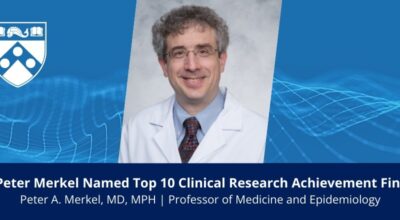
Congratulations to Dr. Peter Merkel, who has been named a finalist for the Clinical Research Forum’s 2026 Top 10 Clinical Research Achievement Awards for his New England Journal of Medicine publication on treating giant cell arteritis.

Congratulations to Dr. Yong Chen on his RECOVER-EHR study being named a 2026 Top 10 Clinical Research Achievement.
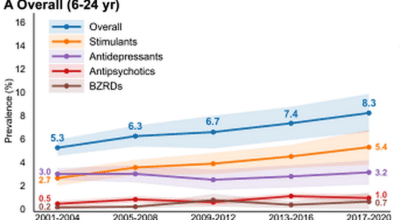
A DBEI-led study found rising psychotropic medication use among U.S. youth, along with growing safety concerns such as polypharmacy and potential drug–drug interactions.

Before joining the Perelman School of Medicine as an Associate Professor of Clinical Medicine, Cameron Baston, MD, MSCE, completed his MSCE at the University of Pennsylvania.

Zixuan (Eleanor) Zhang, PhD, is a postdoctoral researcher in the Department of Biostatistics, Epidemiology and Informatics whose work focuses on statistical and computational methods in statistical genetics. In this Q&A, she shares what inspired her research and what she values about the DBEI community.

Jeffrey S. Morris, PhD, analyzes the U.S. vaccine safety monitoring system and suggests improvements in a new APPC white paper.

In a recent interview, Dr. Sean Hennessy highlights how scientific evidence and advocacy can drive FDA label changes that expand access to safe, effective medications.

Dr. LauraEllen Ashcraft has been named Co-Director of AMETHIST@Penn, where she will help lead efforts to support the NIH IMPROVE initiative and advance equitable maternal health research through implementation science.

Kyle Busse, PhD, MPH, is a postdoctoral researcher in the Department of Biostatistics, Epidemiology and Informatics whose work focuses on how lifestyle factors influence reproductive and perinatal health. In this Q&A, he discusses the experiences that shaped his research interests and what he values about being part of the DBEI community.
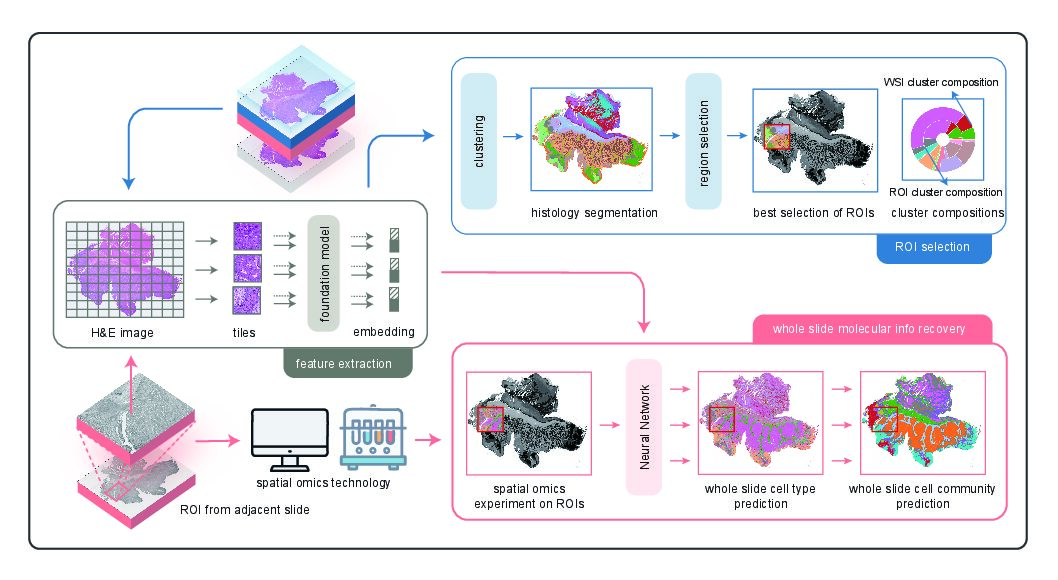
A new paper led by DBEI faculty member Mingyao Li, PhD, introduces smart spatial omics (S2-omics), an automated workflow that improves the rigor and reproducibility of spatial omics experiments.

Kenneth M. Lee, PhD, is a postdoctoral researcher in the Department of Biostatistics, Epidemiology and Informatics whose work centers on palliative care and statistical methods for cluster-randomized trials. In this Q&A, he reflects on the motivations behind his research and his experience within the DBEI community.

A new study by Dr. Ricardo Castillo identifies stark rabies inequities in Arequipa driven by neighborhood socioeconomic status.
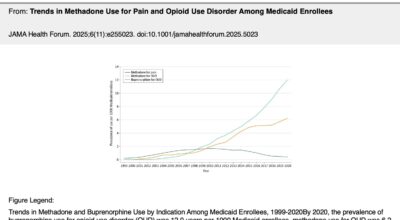
Penn researchers have received NIH/NIBIB funding to develop robust and interpretable multi-modal AI models that integrate genomics, imaging, and electronic health data to advance cancer and Alzheimer’s disease research.
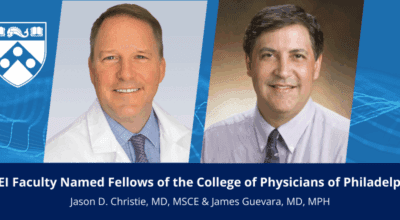
Congratulations to Drs. Jason D. Christie and James P. Guevara on their election as Fellows of the College of Physicians of Philadelphia, recognizing their impactful contributions to medicine and public health.

Penn researchers have received NIH/NIBIB funding to develop robust and interpretable multi-modal AI models that integrate genomics, imaging, and electronic health data to advance cancer and Alzheimer’s disease research.

Kwangmoon Park, PhD, is a researcher in the Department of Biostatistics, Epidemiology and Informatics whose work focuses on gene regulation using large-scale single-cell data. In this Q&A, he shares insights into his research and his experience in the DBEI community.

A new method helps prevent “preference collapse” in AI training, offering a fairer, more balanced approach to aligning large language models.

Before joining DBEI as an Associate Professor of Medicine and Epidemiology, Joshua F. Baker, MD, MSCE, completed his MSCE at the University of Pennsylvania.

Dr. Hongzhe Li’s team developed RCANE, an AI tool that predicts cancer copy-number aberrations from RNA-seq data, offering a faster, lower-cost alternative to DNA sequencing.

Natalia Irvine, MPH, is a Research Project Manager for the Center for Health Innovations in Reproductive and Perinatal Population Research (CHIRP). Her work supports studies focused on advancing reproductive and perinatal health. In this Q&A, she shares her experience joining the DBEI community.

Before joining Alnylam Pharmaceuticals, Inc. as a Director of Medical Affairs Biostatistics, Shaun Bender, MS, PhD, completed his PhD in Biostatistics at the University of Pennsylvania.

Penn researchers have developed an innovative approach for detecting AI-generated text that remains accurate even after human edits.

Jagadeesh Puvvula, PharmD, PhD, MPH, is a trainee in the Department of Biostatistics, Epidemiology, and Informatics, whose work explores how early-life environmental exposures impact human health. In this Q&A, he shares insights into his research, the real-world relevance of environmental health studies, and the value he finds in mentorship and interdisciplinary collaboration.

Nandita Mitra, PhD, was honored with two 2025 Penn Medicine Awards of Excellence for her outstanding contributions to research and education.

Dr. Qi Long and collaborators have received NIH/NIBIB funding to advance neurosymbolic AI for smarter, more trustworthy healthcare.

A new study in The Lancet Infectious Diseases shows that COVID-19 reinfection in children significantly increases the risk of long COVID and other serious health complications.
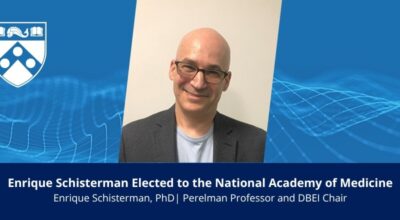
DBEI Chair Enrique Schisterman, PhD, has been elected to the National Academy of Medicine, one of the most prestigious honors in health and medicine.
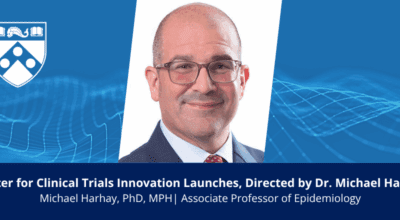
Michael Harhay, PhD, MPH, leads the newly launched Center for Clinical Trials Innovation, a hub dedicated to advancing clinical trial methods and improving research outcomes worldwide.

A new study by Dr. Hongzhe Li and AMCS PhD student Haoshu Xu introduces a machine learning framework that enables large-scale analysis of single-cell data, offering new insights into how gene co-expression networks shift with age.

Penn faculty Dr. Yong Chen and Dr. David Wolk have received a landmark NIH U24 award to lead national efforts to improve data quality and advance Alzheimer’s research.

Dr. Nandita Mitra has been elected President-Elect of ENAR, a leading professional society for biostatistics and quantitative research.

We’re excited to share that Li Shen, PhD, has agreed to serve as Interim Director of the Division of Informatics.

DBEI proudly welcomes Sunni Mumford, PhD, as the new Director of the Division of Epidemiology.
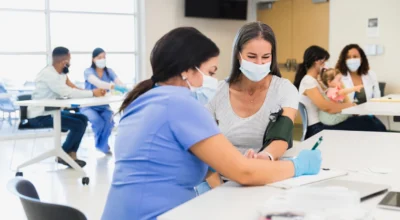
Penn researchers developed a highly accurate model to predict who is most at risk of overdose from stimulants such as cocaine and methamphetamine—offering a promising tool to guide early intervention and prevention efforts.

Dr. Anne Marie McCarthy has co-authored a new article examining how body mass index (BMI) and breast density interact to influence breast cancer risk among Black and White women.

Laura Ellen Ashcraft, PhD, MSW, introduces GUIDE—a new tool that turns complex implementation science theory into practical steps for early-career researchers.

LauraEllen Ashcraft and collaborators outline a seven-step framework in BMJ Open Quality to strengthen evaluation planning and interdisciplinary collaboration.
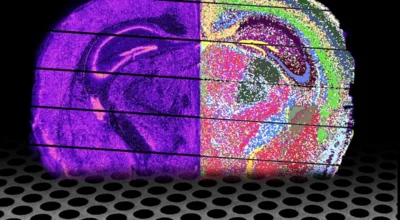
Dr. Mingyao Li co-authored a study demonstrating iSCALE, a method that maps large human tissues at molecular and spatial resolution, uncovering disease features previously invisible.
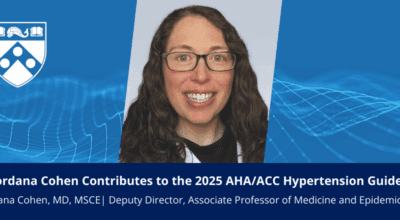
Jordana Cohen, MD, MSCE, contributed to the 2025 AHA/ACC Hypertension Guideline–the first national update since 2017–introducing major changes in risk assessment, screening, and treatment. Her work was featured in an NPR interview highlighting these advances.

Drs. Nadir Yehya and Michael Harhay received a 5-year R01 grant from NICHD to lead the PARMA trial, a study advancing treatment strategies for pediatric ARDS.

Congratulations to Dr. Todd Miano, recipient of the American College of Epidemiology’s 2025 Early Career Epidemiologist Award. This honor recognizes his outstanding contributions to advancing drug safety research and shaping the future of acute care pharmacoepidemiology.

Dr. Samantha Piekos’ study shows how placental biology varies across pregnancy complications, highlighting the power of a systems biology approach to distinguish complex pregnancy syndromes.
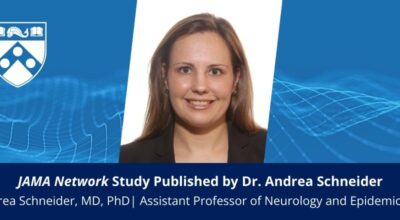
Dr. Andrea Schneider’s study finds that vascular risks, particularly diabetes, are linked to slower cognitive recovery after traumatic brain injury.

Dr. Mary Putt and her team contributed to new research exploring how sleep drive impacts seizure severity and identifies a potential way to reduce them.

Join us in congratulating Dr. Nandita Mitra on her appointment to Penn’s Academic Planning and Budget Committee, where she will help guide the University’s academic and financial planning.
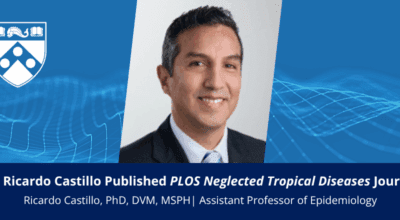
Ricardo Castillo’s new study identifies critical barriers to mass dog rabies vaccination campaigns and proposes strategies to eliminate dog-mediated human rabies by 2030.
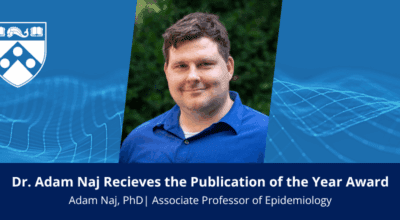
Congratulations to Dr. Adam Naj, honored with the Publication of the Year Award for a major study on PSP genetics published in Nature Communications.
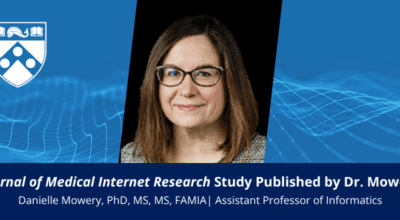
Dr. Danielle Mowery’s new study explores how patients engage with SMS systems after hospital discharge and what those patterns reveal about future care needs.
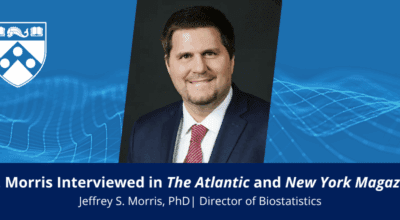
Dr. Jeffrey Morris was featured in The Atlantic and New York Magazine’s Intelligencer, where he discussed major flaws in widely cited vaccine studies and the risks of bias in study design.
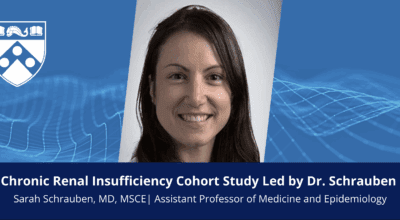
Sarah Schrauben, MD, MSCE, led a 7-year study showing how urine biomarkers may help noninvasively track kidney disease in diabetic patients.

LauraEllen Ashcraft, PhD, MSW, is an Assistant Professor of Epidemiology whose research focuses on implementation science, equity, and translating evidence into sustainable practices in real-world health care settings.

Julia DiTosto, MS, is a PhD student in Epidemiology whose research explores how gynecologic conditions like fibroids and PCOS may impact long-term heart health. Using real-world data and causal inference methods, she aims to generate insights that improve care for reproductive-age populations.

Carmen Guerra, MD, MSCE, is launching a mobile mammography program on July 13 to expand access to mammography for communities in and around Philadelphia.

Congratulations to Dr. Ellie Caniglia on receiving the Brian MacMahon Early Career Epidemiologist Award in recognition of her outstanding contributions to epidemiology.
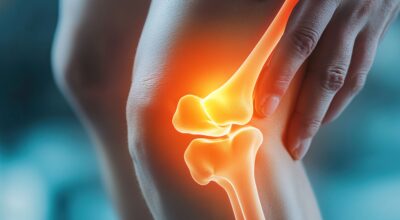
Dr. Alexis Ogdie co-authored a study published in the Annals of the Rheumatic Diseases that explores distinct patient groups and treatment responses in psoriatic arthritis.
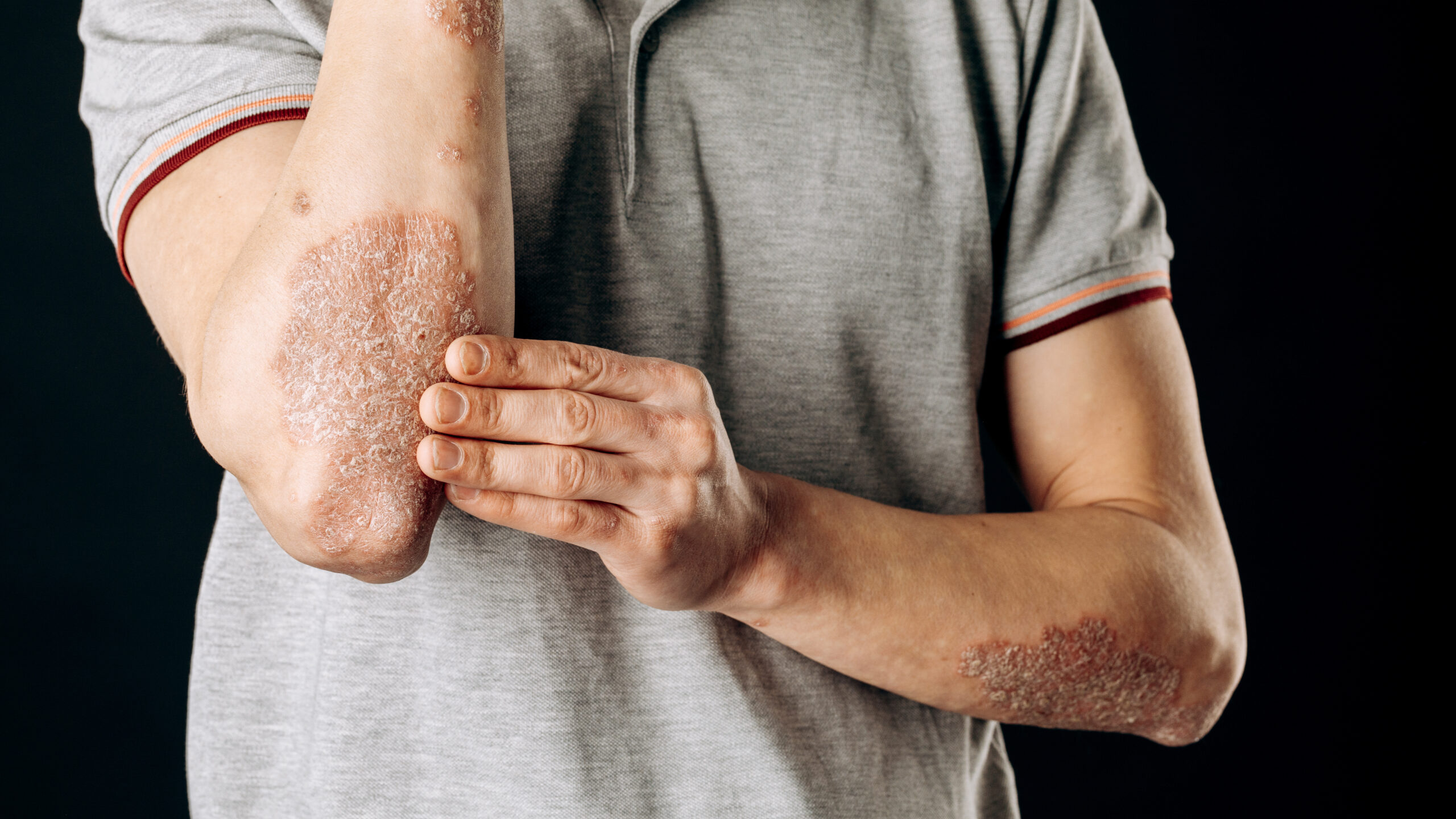
A new study in Arthritis Care & Research, co-authored by Dr. Alexis Ogdie, explores patient-defined treatment goals in psoriatic arthritis.

Dr. Alexis Ogdie joins Medscape’s InDiscussion podcast to talk about digital tools for psoriatic disease, including the development of the Psorcast app and the future of technology in rheumatology care.

Karen Glanz, PhD, MPH, is the George A. Weiss University Professor with joint appointments in Penn’s Perelman School of Medicine and School of Nursing. Her work focuses on translating theory into practice to address critical public health issues like physical activity, obesity, and health equity.
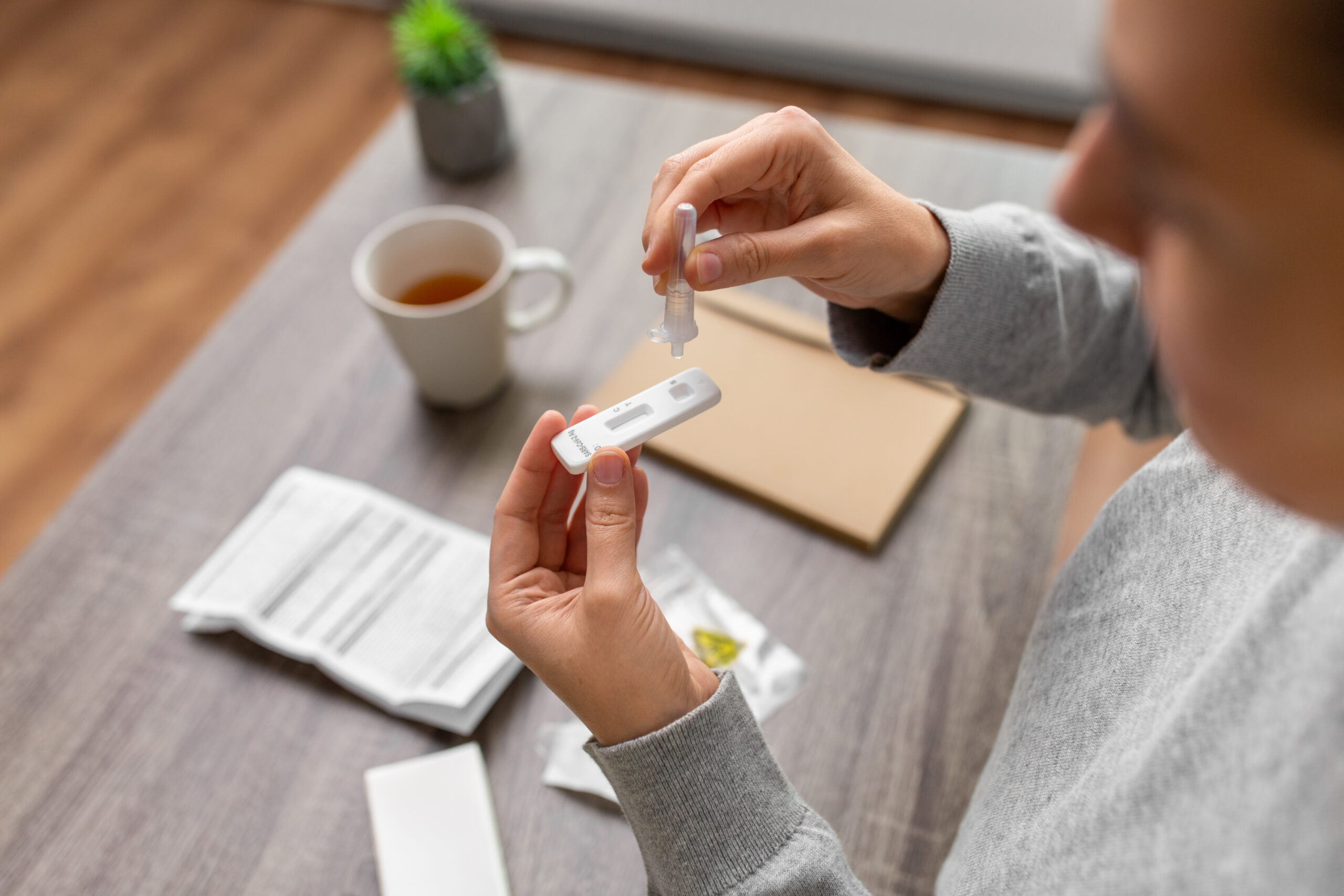
Congratulations to Dr. Alisa Stephens Shields on her recent JAMA Network Open publication evaluating the impact of COVID-19 self-test kit distribution in underserved communities.

Before joining Brown University as an Assistant Professor of Biostatistics, Arman Oganisian, PhD, completed his PhD in Biostatistics at the University of Pennsylvania.

Congratulations to Basam Alasaly, from Penn Medicine’s AI4AI Lab, for presenting at the AMIA 2025 Clinical Informatics Conference.

Jordana B. Cohen, MD, MSCE is an Associate Professor of Medicine and Epidemiology in the Department of Biostatistics, Epidemiology, and Informatics, a Senior Scholar in the Center for Clinical Epidemiology and Biostatistics (CCEB), and a Fellow at the Leonard Davis Institute of Health Economics.
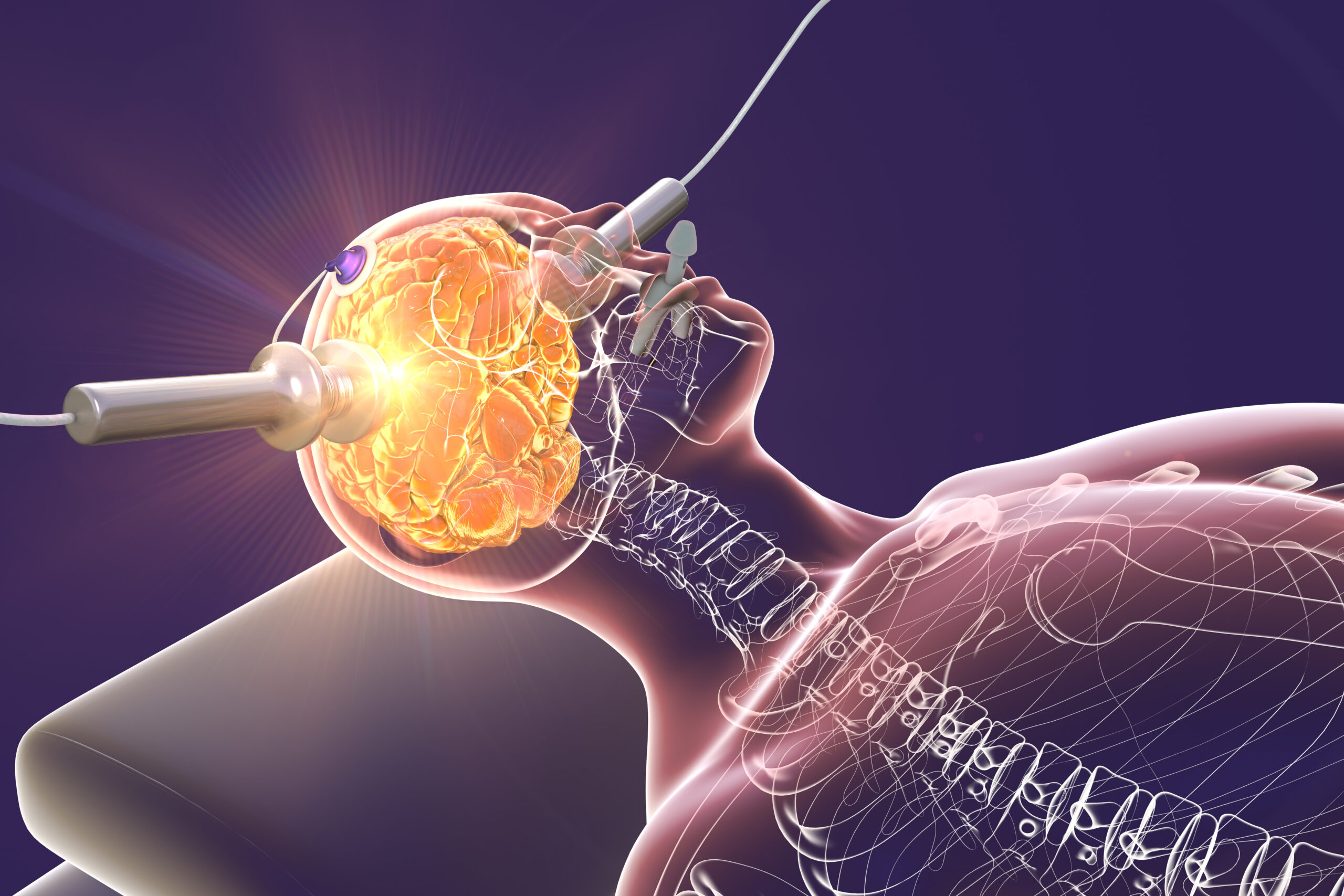
Congratulations to Dr. Mary E. Putt on her recent publication in Physician’s Weekly exploring how brain activity following electroconvulsive therapy (ECT) could hold new clues for improving treatment of severe, treatment-resistant depression.

Congratulations to Dr. Kevin B. Johnson on his publication in The Scientist highlighting the development and global impact of REDCap as a vital tool for clinical research data management.

Congratulations to Dr. Nandita Mitra on her election as President of the Society for Causal Inference. This leadership role recognizes her longstanding contributions to the field and her commitment to advancing research and collaboration in causal inference.
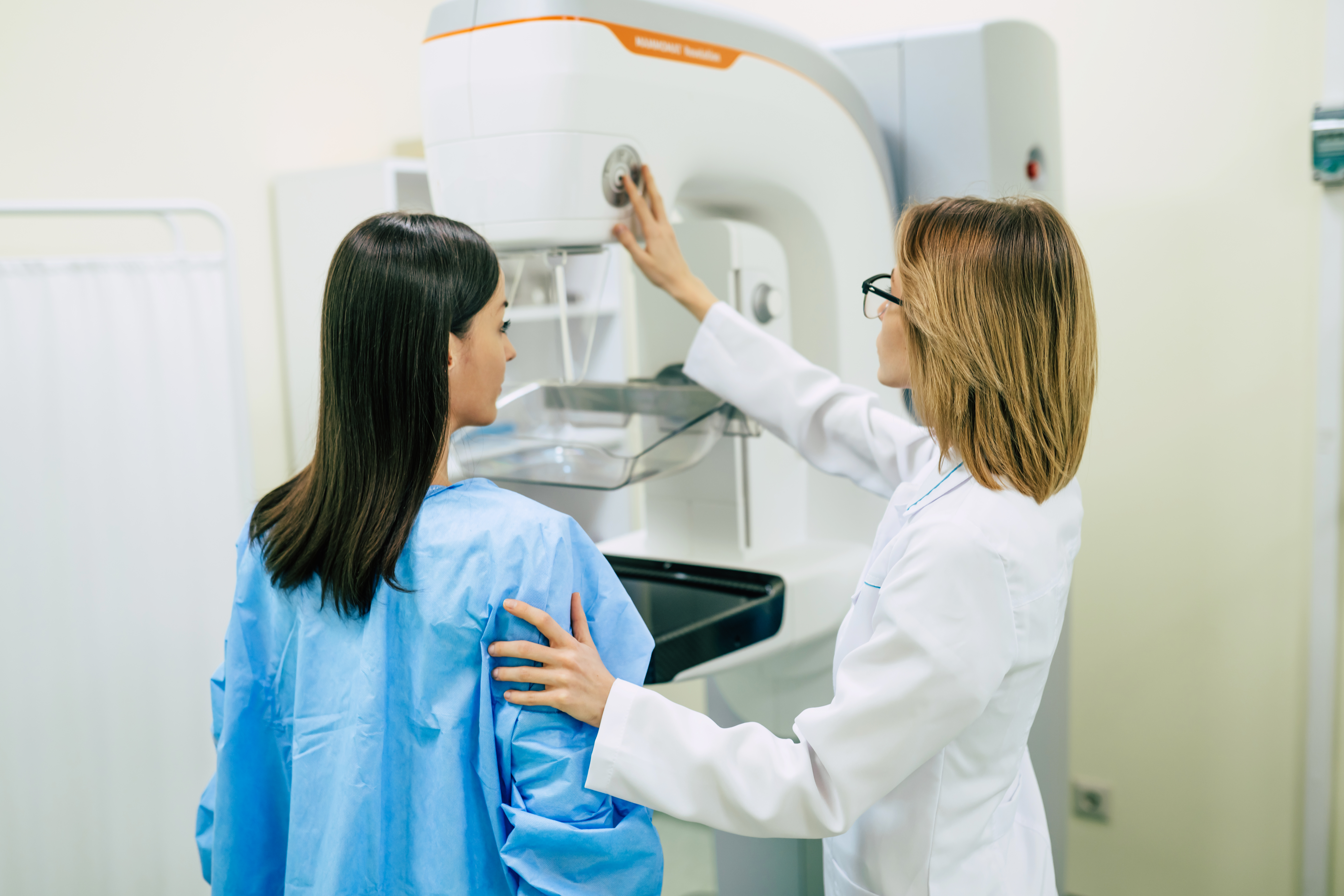
Congratulations to Dr. Anne Marie McCarthy on her recent publication in Radiology, highlighting how advanced imaging techniques can uncover subtle breast tissue patterns linked to cancer risk.

Congratulations to Dr. Rui Xiao on her Nature publication offering new guidelines to support rigorous and reproducible research using zebrafish, a key model in biomedical science.

Read about Dr. Mingyao Li’s recent publication in Nature, which maps early human brain development using spatial transcriptomics. The study reveals that cortical layers and areas are specified earlier than previously thought, offering new insight into how the brain takes shape.

Read about Dr. Sean Hennessy’s recent publication in the American Journal of Epidemiology, which uses a new statistical method to better understand the real-world effects of testosterone therapy. The study offers valuable insights into balancing its potential benefits and risks in clinical care.

Read about Dr. Jordana Cohen’s editorial in Annals of Internal Medicine, where she highlights important considerations around diagnostic testing for primary aldosteronism and its impact on patient care.

Qi Long, Professor at the University of Pennsylvania, has been named a Fellow of the Institute of Mathematical Statistics—a prestigious honor awarded for his impactful work in advancing data science and applying statistics to improve biomedical research.
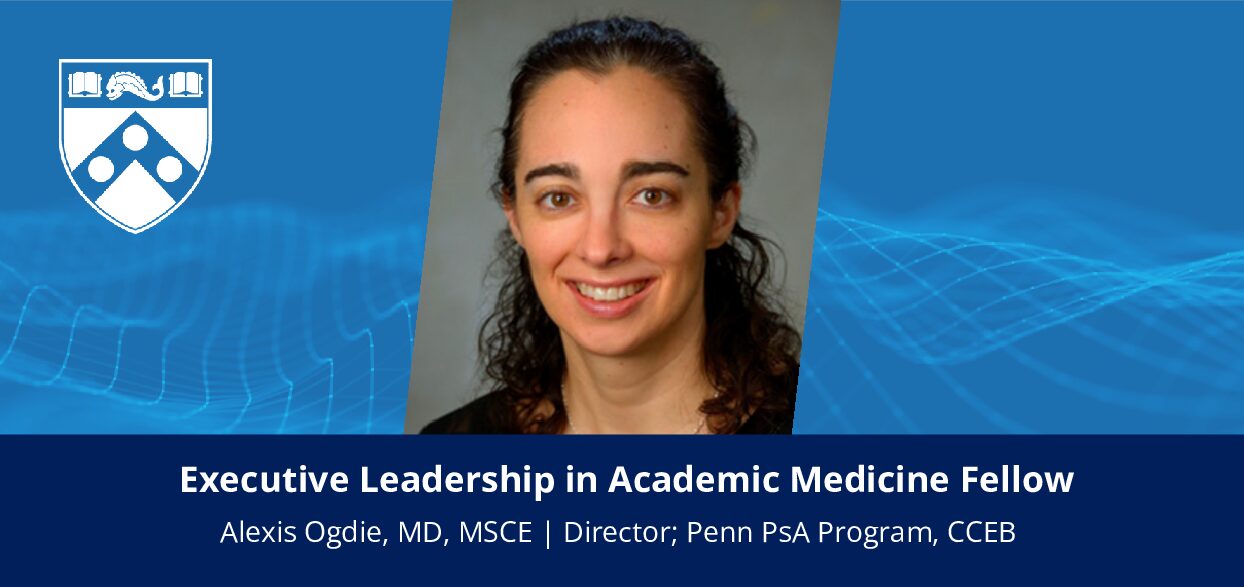
Alexis Ogdie, MD, MSCE, selected Executive Leadership in Academic Medicine Fellow.

Dr. Yong Chen has been awarded $8 million to lead a national effort using AI to improve how mental health conditions are diagnosed and treated—part of a larger $150 million initiative to advance mental health research.

A new study led by James Lewis, MD, MSCE, finds that racial and ethnic gaps in IBD care are closely tied to socioeconomic factors—highlighting the need for more equitable access to treatment and specialist care.

Flawed study designs in nutrition research may be leading to misleading advice about healthy eating. DBEI’s Mary E. Putt, ScD, and co-authors warn that many popular dietary trials are too short and poorly structured to give reliable results-putting future nutrition guidelines at risk.

Jinbo Chen, PhD elected 2024 American Association for the Advancement of Science Fellowof this post here.

Nandita Mitra, PhD has been awarded the Lindback Foundation Award for Distinguished Teaching.

Dr. Eric Tchetgen Tchetgen has been awarded the inaugural David Cox Medal for Statistics, which honors mid-career researchers for outstanding contributions to the field.

Penn researchers, including Drs. Halpern and Harhay, found that electronic nudges improved end-of-life care discussions in ICUs, increasing hospice discharges and comfort-care orders without shortening hospital stays.

Penn Medicine researchers, including M. Kit Delgado, MD, MS, found that small financial incentives using connected car data significantly increased seatbelt use—even after rewards ended—offering a low-cost, scalable strategy to improve driver safety nationwide.

Elizabeth Diemer, PhD, brings expertise in causal inference and mental health epidemiology to her new role as an Assistant Professor of Epidemiology within the department.

Drs. Christie, Halpern, and Harhay are to be honored by the American Thoracic Society (ATS) for excellence in research, humanism, and mentorship. Awards will be presented at the 2025 ATS International Conference in San Francisco (May 18-21, 2025).

Kevin B. Johnson, MD, MS, and Penn Medicine researchers conducted a study demonstrating how an AI-powered scribe technology reduces clinician workload, enhances patient interactions, and decreases after-hours documentation, improving efficiency and easing physician burnout.

Rising temperatures pose serious risks for people with type 2 diabetes, increasing the likelihood of heat exhaustion, blood sugar fluctuations, and cardiac issues. Charles Leonard, PharmD, MSCE, FISPE addresses these health threats with Yale Climate Connections.

A new National Academies of Sciences, Engineering, and Medicine (NASEM) report, involving DBEI experts Brian Strom, MD, MPH and John Farrar, MD, PhD, finds that co-prescribing opioids and benzodiazepines to veterans increases the risk of death, highlighting critical implications for veteran health care.
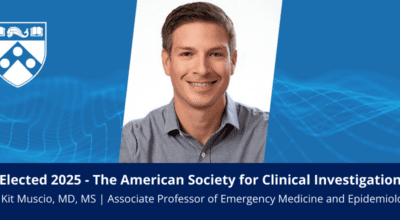
Muscio Kit Delgado, MD, MS, Associate Professor of Emergency Medicine and Epidemiology, has been elected to the ASCI. His research blends behavioral and data science with insights gleaned from practicing emergency medicine in an urban trauma center to help promote smarter health choices and policy.

In a new study, Yong Chen, PhD and colleagues at Penn Medicine, used AI and latent transfer learning to analyze long-COVID data, identifying four patient sub-populations with distinct care needs, improving hospital resource allocation and tailoring treatment for diverse patient populations.

Mingyao Li, PhD and her Penn Medicine colleagues developed an AI-powered tool called MISO (Multi-modal Spatial Omics) that can detect cell-level characteristics of cancer by looking at data from extremely small pieces of tissue—some as small as the width of five human hairs.
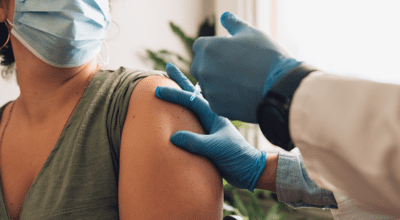
Amid rising polarization and misinformation, Jeffrey Morris, PhD, of Penn Medicine tackles vaccine skepticism with evidence-based insights. In an interview with Undark, he advocates respectful dialogue that considers social and political dynamics.

The University of Pennsylvania Prevention Research Center has received a $6.5 million CDC grant to advance community-based prevention research, focusing on improving shared decision-making for older cancer patients. This five-year project will study interventions tailored to patients’ needs, enhancing outcomes in Philadelphia and beyond.

In Annals of Internal Medicine, Nicholas Seewald, PhD, introduces a framework for target trial emulation, enabling researchers to evaluate health policies with the rigor of clinical trials in nonexperimental studies.
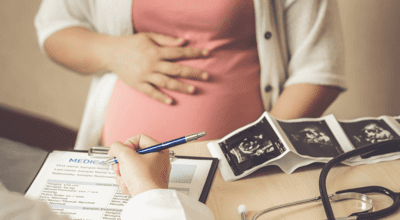
Penn and CHOP researchers receive a $50 million NIH grant to study how environmental exposures impact pregnancy and child health, aiming to reduce health disparities and improve maternal-child outcomes.

Joseph Romano, PhD, MPhil, MA is an Assistant Professor of Informatics in the Department of Biostatistics, Epidemiology and Informatics, Senior Fellow in the Institute for Biomedical Informatics (IBI) and an investigator in the Center of Excellence in Environmental Toxicology (CEET).

Alisa Stephens Shields, PhD serves as an Associate Professor in the Biostatistics division of the Department of Biostatistics, Epidemiology and Informatics, and is recognized for her collaboration and impactful leadership in the realms of health, statistical education, and inclusion in the field.

For almost three years, Kacie Bogar, MS has served as a Research Project Manager for the Center for Real-World Effectiveness and Safety of Therapeutics (CREST) and the Epidemiology division in the Department of Biostatistics, Epidemiology and Informatics.

Alisa Stephens Shields, PhD, Associate Professor of Biostatistics, was selected by the Harvard T.H. Chan School of Public Health to receive the 2024 Myrto Lefkopoulou Distinguished Lectureship.

Before joining Harvard University as an Assistant Professor of Biostatistics, Rui Duan, PhD, completed her PhD in Biostatistics at the University of Pennsylvania.

Edward Kennedy, PhD is a Penn alum through and through—prior to completing his PhD in Biostatistics in 2016, he earned his BA in Mathematics (2007) and MA in Statistics (2014) from the University.
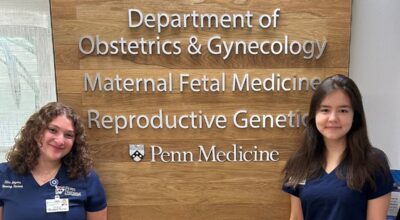
Penn undergraduates assist Beth Leong Pineles, MD, PhD with a study of activity restriction during pregnancy with the goal of “deimplementation” in the Penn Medicine system and ultimately nationwide.

Michael Harhay, PhD, MPH, co-authors “Bayesian Statistics for Clinical Research” in The Lancet, comparing Bayesian and frequentist methods and highlighting the growing accessibility and impact of Bayesian analysis in medical research.

In a recent Undark feature, Dr. M. Kit Delgado, Associate Professor of Emergency Medicine, discusses how behavioral science and nudge theory are transforming health care decision-making.
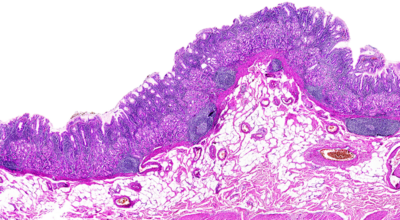
Dr. Mingyao Li’s article in Nature Methods discusses how artificial intelligence is revolutionizing spatial omics, enhancing integration of diverse data and accelerating biological discoveries for improved health outcomes in biomedical research.

Can cash incentives make roads safer? A Penn Medicine study led by Dr. M. Kit Delgado reveals how rewards and feedback can significantly cut down handheld phone use while driving.

Qi Long, PhD, Professor of Biostatistics, has been appointed as the new DBEI Vice Chair of Faculty Professional Development, effective July 1, 2024 through June 30, 2027.
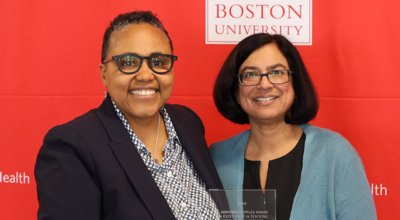
Nandita Mitra, PhD, Professor of Biostatistics, has been awarded the 2024 L. Adrienne Cupples Award for her outstanding contributions to research, teaching, and leadership in biostatistics and public health.

Penn Medicine researchers are developing AI-powered tools to help clinicians interpret conflicting clinical trial results, aiming to improve patient care and decision-making.
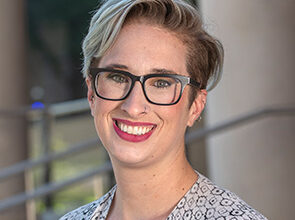
Joining the DBEI as an Assistant Professor of Epidemiology, LauraEllen Ashcraft, PhD, MSW, will support the development of implementation science infrastructure across divisions.

The Department of Biostatistics, Epidemiology and Informatics and Master of Public Health Program at the University of Pennsylvania have established an Epidemiology track within the MPH Program, an interdisciplinary graduate program focused on preparing the next generation of public health leaders.

Excess weight gain during pregnancy increases long-term death risk from heart disease and diabetes, a Penn Medicine study finds, highlighting the need for better prenatal weight management and preventive care.
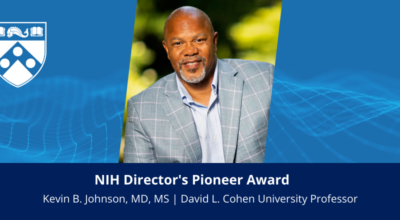
Kevin B. Johnson, MD, MS was awarded the NIH Director’s Pioneer Award under the “High-Risk, High-Reward Research” program funded by the National Institutes of Health Common Fund. Established in 2004, the NIH […]

Joel Gelfand, MD, the James J. Leyden, M.D. Endowed Professor in Clinical Investigation of Dermatology and Epidemiology, and colleagues at Penn found that adults and children with atopic dermatitis (AD) […]

In April 2023, the American Statistical Association (ASA) bestowed its prestigious distinction of Fellow on Phyllis Gimotty, PhD, Alisa Stephens-Shields, PhD, and 45 other ASA members for their professional contributions, leadership, and commitment […]

Earlier this year, John Farrar, MD, PhD and Enrique Schisterman, PhD were named to National Academies of Sciences, Engineering, and Medicine ad-hoc committees. Farrar serves on “Evaluating the Effects of Opioids and Benzodiazepines on […]

Pregnancy complications like preterm birth and high blood pressure increase long-term death risk, a Penn Medicine study finds, highlighting the need for preventive care decades after childbirth.
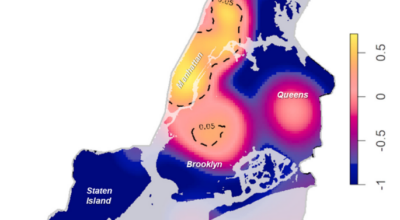
Elizabeth Nesoff, PhD, MPH discusses her recently published study in the Leonard Davis Institute of Health Economics (LDI) blog investigating neighborhood features that were correlated with fatal opioid overdoses among the […]

Anne Marie McCarthy, PhD was featured on the Real Pink Podcast where she discussed the development of new ways to identify people with high risk of aggressive breast cancer. Understanding your breask cancer risk

Penn Medicine has opened a Center for Living Donation, bringing under one roof its services for patients who receive kidney, liver, and uterus transplants with organs donated by living people. […]

Dr. Kevin Johnson, MD, MS, FAAP, FAMIA, FACMI shares his experience trying to donate blood as a gay man and discusses how the Unites States has more restrictive rules than […]

A difference in the effectiveness against strokes and other blood clots was easily visible in the first year among patients who’d taken the anticoagulant apixaban rather than rival rivaroxaban, according […]
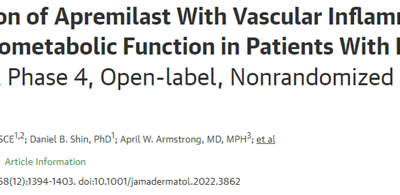
First study author, Joel M. Gelfand, MD, MSCE, and the investigators discovered that apremilast (brand name Otezla), which has helped psoriasis patients achieve clearer skin and ease the symptoms of their psoriatic arthritis, could […]

Penn Medicine researchers will help lead the development of an algorithm to flag patients at risk of rare disease thanks to a $4.7 million NIH grant. This 4-year U01 will involve 10 […]
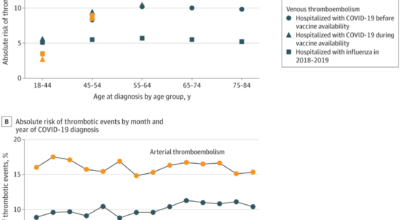
COVID-19 has been associated with a multitude of diseases, but can it also increase the risk of dangerous blood clots? Dr. Vincent Lo Re III and colleagues explore the risk […]

Patients come to a hospital nearly 36 million times each year in the US, and antibiotics are often part of the picture: One large study showed that clinicians prescribed them […]

In 1991, the National Academies of Sciences, Engineering and Medicine declared that computer-based patient records were an essential technology for health care. The new records would not only support patient […]
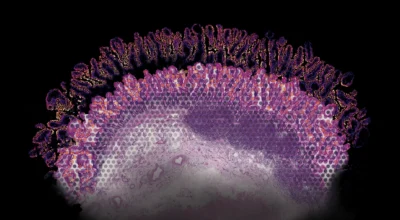
Advanced spatial transcriptomics techniques are advancing our understanding of cancer and other diseases at the cellular level: “You can zoom in, you can look at the tissue-specific features, how many […]
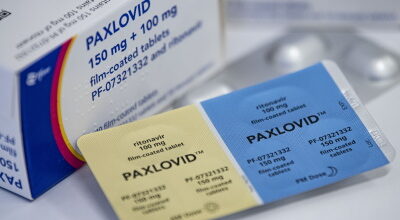
In a review of current facts about the antiviral drug Paxlovid, Susan Ellenberg, PhD, comments on Pfizer’s unusual release of interim results during an ongoing clinical trial. Read the article […]

Knashawn Morales, ScD, and Wei-Ting Hwang, PhD, have been named as new Fellows of the American Statistical Association. The world’s largest community of statisticians, the ASA is known as the […]

If Philadelphia’s masking policy aims to prevent spread of Covid-19, emphasizing hospitalization numbers, a lagging indicator, over case numbers isn’t wise, comments Michael Levy, PhD. “It’s like instead of using […]
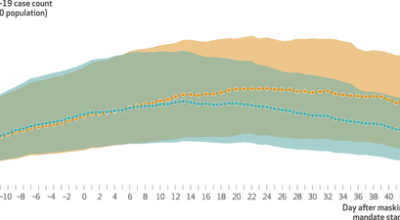
Masking policies during Covid-19 have inspired plenty of political debate, but scientific evidence about the policies’ effects has been very limited. This isn’t surprising, given that it is not practical […]

At the start of the pandemic, professionals working in health systems across the US realized that if a sizable portion of the many people infected with SARS-CoV-2 went to hospitals, […]

A diagnosis of ankylosing spondylitis finally explained Christi Taylor-Gentry’s throbbing joint pain. But as recently as 2006, when Alexis Ogdie-Beatty, MD, MSCE, became a doctor, she was taught that the […]
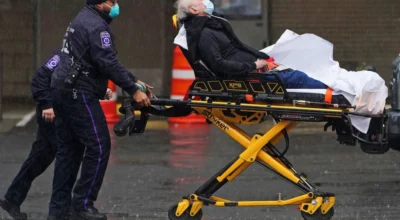
Amid the omicron surge, more patients are coming into the hospital for other reasons but testing positive for Covid-19 once they arrive. M. Kit Delgado, MD, MS, says that many […]
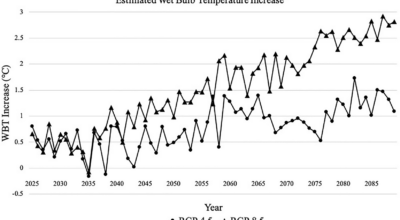
In addition to making events such as catastrophic flooding more frequent, climate change will negatively affect human health in many other ways. Prior research has demonstrated, for instance, that high […]

Kevin Johnson, MD, MS, FAAP, FAMIA, FACMI, has been named the David L. Cohen University Professor. Dr. Johnson says that like Cohen, he believes in uniting various sectors to achieve […]

George Demiris, PhD, FACMI, has been named the Mary Alice Bennett University Professor. He cites Dr. Bennett’s pioneering policy of respectful care for patients as a great inspiration. Read more.
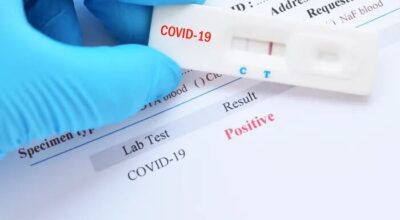
Epidemiology PhD candidate Katherine Strelau reached a new understanding when she tested positive for Covid-19: We have entered a new era of the pandemic, she wrote in an opinion piece. […]

“We may have underestimated our ability to pivot and change rapidly,” Peter Merkel, M D, MPH, comments about the many ways Covid-19 has reshaped the way we conduct clinical trials ” […]

Jeffrey Morris, PhD, commented on how expanded reporting requirements and intense scrutiny of the hundreds of millions administered COVID-19 vaccine doses have driven record-high reporting of potential side effects to […]

“Pregnant women CAN drink coffee – it could even slash risk of disease for mum and baby,” proclaimed a headline in the English paper The Sun about a recent study […]

Low to moderate caffeine intake during pregnancy may lower gestational diabetes risk without increasing risks for preeclampsia or hypertension, a Penn Medicine study finds, offering reassurance to pregnant coffee drinkers.
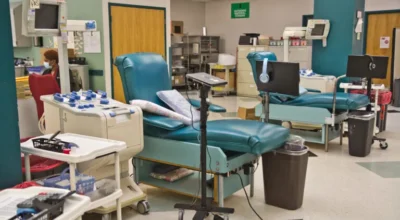
Hospitals in Philly are facing a bad blood shortage. During a pandemic, people still get into accidents and get cancer that requires transfusions, says Meenakshi Bewtra, MD, PhD, MPH. Read […]

It’s frustrating when vaccine opponents use the government’s VAERS database to stoke false concerns about safety, says Susan Ellenberg, PhD, “especially when they interfere in such major ways with critical […]

Many human diseases start out with single cells, which establish the problem by spreading out. Spatial transcriptomics, a groundbreaking method, allows scientists to take advantage of that activity, measuring all […]
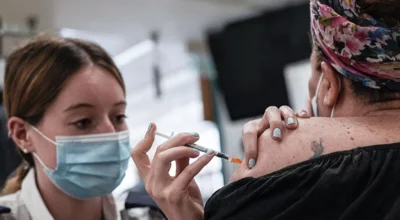
A new study showed that older Israelis who received a third dose of a COVID-19 vaccine are much less likely to test positive for SARS-CoV-2 or to develop severe COVID-19 […]

The experience of a Covid-19 breakthrough infection can range “from being asymptomatic to feeling pretty lousy, but typically it’s a shorter course than what we’re seeing for COVID without the […]
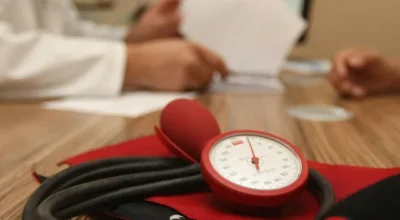
Measuring blood pressure is hard, and getting it right is critical. Can we do it with a smartwatch? That technology is “not ready for primetime yet,” says Jordana Cohen, MD, […]
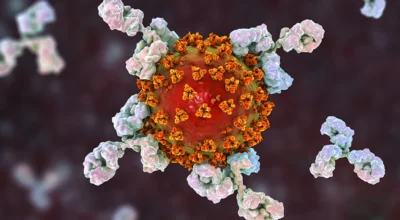
Some evidence that the protection of the Covid19 vaccine wanes comes from observational studies ” and so we must view our inferences critically, says Jeffrey Morris, PhD. In everyday life, […]
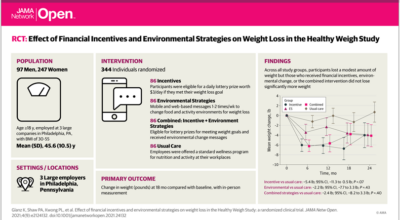
Given rising rates of obesity in the U.S. and the many associated health problems, researchers have tested various strategies for weight loss. Both financial incentives and environmental changes — such […]

An analysis by Jeffrey Morris, PhD, showed how Israel’s Covid19 data were easily misinterpreted: the elderly are both most vaccinated and most at risk for severe illness. The findings were […]
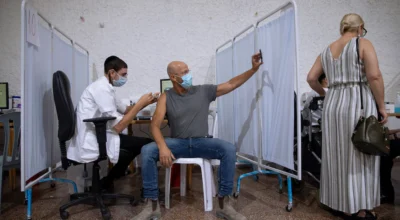
Covid-19 vaccines work, but a statistical illusion makes some people think they don’t. This perspective piece prominently cites work by Jeffrey Morris, PhD. Read the perspective in the Washington Post
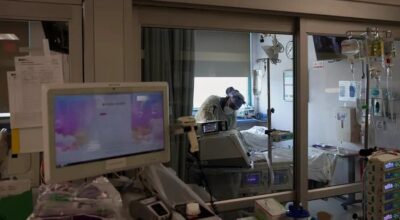
To slow spread of the Covid-19 delta variant, Philadelphia needs an even greater, on-the-ground push for more vaccination, comments Michael Levy, PhD: “This thing is just about momentum.” Read the […]

Michael Z. Levy, PhD, warned that the looming return of evictions comes at a time when COVID-19 vaccination rates in the U.S. have plateaued and while the highly transmissible Delta […]

Can a music festival be safe during the Covid-19 pandemic? It’s not so much about attendees’ personal risk, comments Michael Levy, PhD. It’s about what happens when they bring the […]

M. Kit Delgado, MD, MS, commented on evidence-based tips to help teens reduce distraction when driving. Read the article in the Wall Street Journal

A good clinician consultant should be able to explain why they arrived at a particular recommendation, and explainable artificial intelligence should also be possible, writes Jason Moore, PhD ” […]
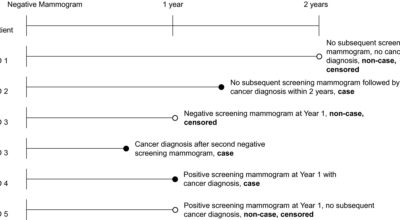
Although mammography reduces breast cancer mortality by 15 to 20 percent, the diagnosis in many cases — approximately 15 percent of all breast cancers — occurs after a patient has […]
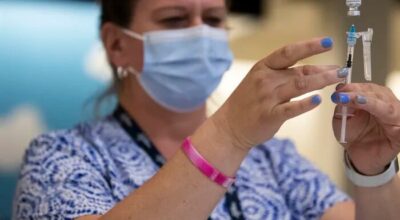
Pennsylvania isn’t tracking all Covid-19 cases in vaccinated residents, but other states’ data show a clear, relevant trend, says Jeffrey Morris, PhD: “The vaccines are really working, and the unvaccinated […]

To maintain public safety and trust in vaccines, we need an agile, internationally harmonized surveillance system, argue Vincent Lo Re III, MD, MSCE, and colleagues. Read the commentary in BMJ […]

Where vaccination rates are highest, we see fewer Covid-19 cases. But if virus activity increases in winter, areas with low vaccination rates will be at higher risk, commented Jing Huang, […]
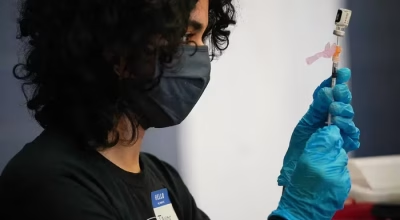
As Pennsylvania nears a Covid-19 vaccination benchmark, Jeffrey Morris, PhD, says county-level variations won’t be a big problem: While we may see some local brush fires, we won’t have a […]

Some people do misinterpret events reported in the public Vaccine Adverse Event Reporting System (VAERS), says Susan Ellenberg, PhD. “But without public access, I think it’s worse. Because then you […]

Michael Z. Levy, PhD, commented on the potential public health consequences of a federal judge’s ruling (later staid, temporarily, by the US Justice Deptl) to end the CDC’s national eviction […]

Susan Ellenberg, PhD, sorted out recent news about COVID-19 vaccines, and how the public can evaluate various facts. Listen to the Stats + Stories podcast

“That first month was really hard,” commented Alisa Stephens-Shields, PhD, about the COVID-19 lockdown. Her infant daughter’s day care was closed, and her five-year-old was at home, not at school. […]

The CDC’s order prohibiting evictions in fall ” winter 2020 likely prevented thousands of COVID-19 infections per million metropolitan residents, showed a study co-led by Michael Z. Levy, PhD. Dr. […]

It will be hard to say when the COVID-19 pandemic is “over” in the United States, says Michael Z. Levy, PhD. “These things don’t necessarily end cleanly,” he said in […]

A new study found that living in a majority-Black neighborhood in Philadelphia is linked to increased maternal health issues. Mary Regina Boland, MA, MPhil, PhD, commented. Read the coverage on […]
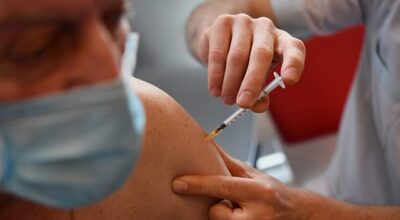
Susan Ellenberg, PhD, discussed the risks of blood clots connected with the AstraZeneca COVID-19 vaccine and weighed whether it was necessary to suspend use. Hear the coverage on the BBC

Susan Ellenberg, PhD, said some reports of post-vaccination symptoms may actually be unrelated to the COVID-19 vaccine. “Vaccines protect against one thing: the infection or the infection plus disease,” she […]
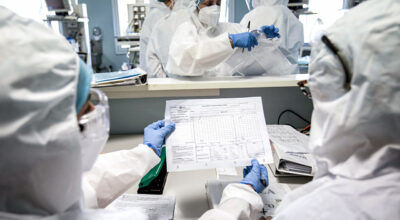
“When you have the whole world working on something at the same time “the evidence evolves fast,” Meghan Brooks Lane-Fall, MD, MSHP, FCCM, commented about COVID-19 care. “Every time I […]
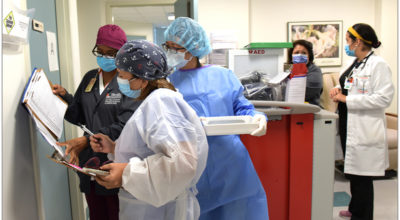
“People can make the argument: I volunteered to be in the trial”¦I should be able to get the vaccine right away even if I’m young and healthy,” Susan Ellenberg, PhD, […]

Jason Moore, PhD, shares his understanding of his field: Data science, at its heart, is about solving a problem with whatever tools you have at your disposal. Read the article […]

The parallels between AIDS and Covid-19 are striking, comments Robert Gross, MD, MSCE. Both are spread asymptomatically, and shaming over whether one does or doesn’t wear a mask is not […]

Typically underserved groups are underrepresented in therapeutic clinical trials” so the findings may be less applicable for them. Sean Hennessy, PharmD, PhD, describes how experimental treatment has benefited his wife […]
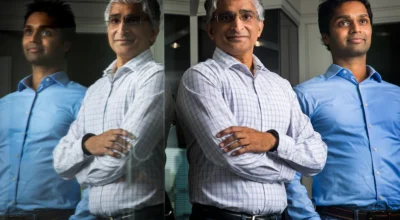
Artificial intelligence and machine learning can help us fight COVID-19, Jason Moore, PhD, told The Washington Post. But if you study only populations that are primarily Caucasian, that may not […]

We believe that as many as one million Americans will need the support of ventilators ” five times the number we have, writes critical care physician Meghan Brooks Lane-Fall, MD, […]

The Philadelphia Chapter of the American Statistical Association” the world’s largest community of statisticians” has honored Hongzhe Li, PhD, with its Award for Reseach Excellence. Read more about Dr. Li.
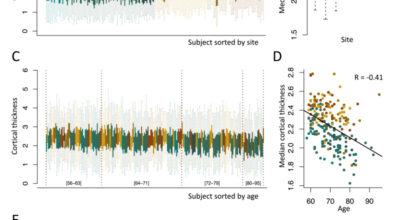
With the proliferation of multi-site neuroimaging studies, there is a greater need for handling non-biological variance introduced by differences in MRI scanners and acquisition protocols. Such unwanted sources of variation, […]